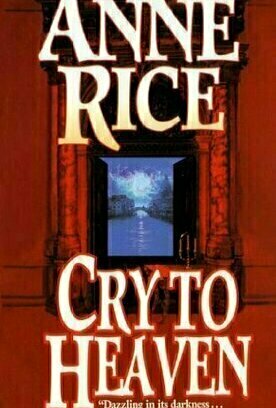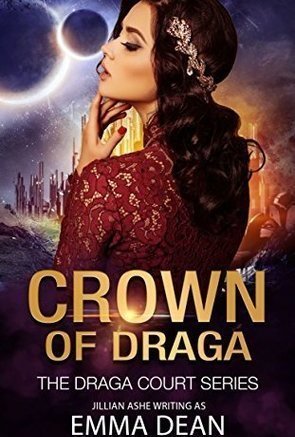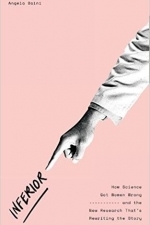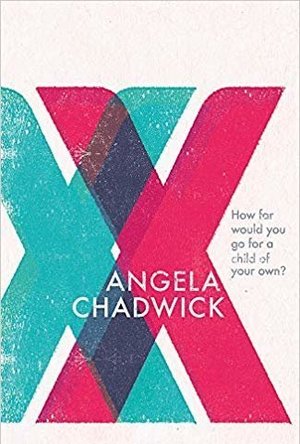Search
Search results

Cry to Heaven
Book
Anne Rice brings to life the exquisite and otherworldly society of the eighteenth-century castrati,...

The Crown Of Draga (Draga Court #2)
Book
The Draga Galaxy is on the brink of war and Adelina will do everything she can to help, including...
4 stars space opera fantasy/sci-fi romance
Suswatibasu (1703 KP) rated Inferior: How Science Got Women Wrong in Books
Nov 12, 2017
A superior book debunking gender stereotypes in the scientific community
There are times when a book comes along that is perfectly timed for the zeitgeist and that is true of Angela Saini's Inferior - How Science Got Women Wrong. Most of the educational and scientific community would protest their absolute lack of gender bias - but the fact remains that the scientific establishment is still predominantly run by men even if in some disciplines there are more female students than male. And some scientists tell us that there is evidence to underline why this is the natural order, due to brain differences between males and females.
Saini systemically pulls this assertion apart, showing how many of the apparent brain differences - and even physical modification of the brain - can be the result of cultural influences. She highlights that although there maybe some differences, they are significantly smaller between male to female, and that each individual should be looked at on a case by case basis.
After a shocking opening demonstrating just how recently women's brains were genuinely considered inferior - Saini quotes Darwin in a letter making it clear that even as a leading evolutionist, he also believed this to be the situation - which is why it's hardly surprising research continues to be skewed.
We also see remarkable bias in the development of anthropological ideas pushing through to the evolutionary field, discussing how men had been seen as hunter gatherers - though this clearly isn't the case in many closed societies. She speaks.to leading scientists who have studied women's roles in tribes across China, South America and Africa, who completely turn this theory on its head.
What she shows is that any interpretation can be possible if you have an agenda, whether consciously or unconsciously, hence research needs to be scrutinised analytically from every perspective. A fascinating and essential read.
Saini systemically pulls this assertion apart, showing how many of the apparent brain differences - and even physical modification of the brain - can be the result of cultural influences. She highlights that although there maybe some differences, they are significantly smaller between male to female, and that each individual should be looked at on a case by case basis.
After a shocking opening demonstrating just how recently women's brains were genuinely considered inferior - Saini quotes Darwin in a letter making it clear that even as a leading evolutionist, he also believed this to be the situation - which is why it's hardly surprising research continues to be skewed.
We also see remarkable bias in the development of anthropological ideas pushing through to the evolutionary field, discussing how men had been seen as hunter gatherers - though this clearly isn't the case in many closed societies. She speaks.to leading scientists who have studied women's roles in tribes across China, South America and Africa, who completely turn this theory on its head.
What she shows is that any interpretation can be possible if you have an agenda, whether consciously or unconsciously, hence research needs to be scrutinised analytically from every perspective. A fascinating and essential read.
ArecRain (8 KP) rated Snow's Surrender (A Snow White Werewolf Tale, #3) in Books
Jan 18, 2018
Since this is the third in the series and emphasizes the story from previous two, I will include my original review.
This is supposed to be a Snow White retelling but I really couldnt see it. Regardless, its an erotic fairytale retelling which is right up my alley. Its heavy on the erotica while still having enough plot to push the story forward. Normally I would be aggravated that this story is divided into three parts but I knew that going in and already had the rest of the story so I didnt have to wait for the rest.
I love friends to lovers stories, especially childhood friends. I would like to say I enjoyed the premise to this story but honestly I thought it was stupid. I wish I had better word but there it is. Now you may be saying but you knew that going in! Honestly, I was hoping it was going to be a ménage. I guess it was just wishful thinking, because what I got instead was the age old hey let me ask my male friend how to seduce this other male but wait my friend wants me trope.
The final in the series is everything you need and more. Even from someone who is bitter that this wasnt the ménage she was looking for. I couldnt have been happier with the ending if I wrote it myself. That being said, there were still many things I was aggravated with. There were few ties to Snow White, little shifter elements, and the story was split in three when it could have easily been one whole story.
Overall, the story was enjoyable if you are looking for a friends-to-lovers erotica.
This is supposed to be a Snow White retelling but I really couldnt see it. Regardless, its an erotic fairytale retelling which is right up my alley. Its heavy on the erotica while still having enough plot to push the story forward. Normally I would be aggravated that this story is divided into three parts but I knew that going in and already had the rest of the story so I didnt have to wait for the rest.
I love friends to lovers stories, especially childhood friends. I would like to say I enjoyed the premise to this story but honestly I thought it was stupid. I wish I had better word but there it is. Now you may be saying but you knew that going in! Honestly, I was hoping it was going to be a ménage. I guess it was just wishful thinking, because what I got instead was the age old hey let me ask my male friend how to seduce this other male but wait my friend wants me trope.
The final in the series is everything you need and more. Even from someone who is bitter that this wasnt the ménage she was looking for. I couldnt have been happier with the ending if I wrote it myself. That being said, there were still many things I was aggravated with. There were few ties to Snow White, little shifter elements, and the story was split in three when it could have easily been one whole story.
Overall, the story was enjoyable if you are looking for a friends-to-lovers erotica.
A provocative, timely, stonking good read!
Such a thought provoking, insightful book! This novel looks at the possibility of two women having a baby using a groundbreaking medical discovery - two ovums, no sperm. Of course there's an outcry. Religious-types, mens rights activists and bigots in general make their opinions publicly known. Jules and Rosie, the two main characters, try to stay out of the limelight. Jules is a reporter at a local Portsmouth newspaper, so knows how the system works, but when the story is leaked to the newspapers, along with their identities, she is sure that her policy of 'no comment' will work. The media doesn't get bored though, and her workplace aren't in any way supportive. They want the story as much as anyone else.
This could have been a terrible book, but it really wasn't. The subject matter was sensitively dealt with, the relationship between Jules and Rosie wasn't sensationalised, reactions, both good and bad, were realistic. This book is coming out during interesting times globally, where women are calling out bad male behaviour. I can see this being a route that a lot of women would take given the opportunity, whether they were gay or straight - and male fertility is taking a nose dive at the moment, too! So perhaps this would be a real solution (if some clever scientist could get it to work!).
By the way, I lived and taught in a high school in Petersfield on the edge of Leigh Park in the mid to late 1990's, and I think she has the essence of the place just right. It's not an easy place to live and grow up in.
Many thanks to NetGalley and Dialogue Books for my copy of this book
This could have been a terrible book, but it really wasn't. The subject matter was sensitively dealt with, the relationship between Jules and Rosie wasn't sensationalised, reactions, both good and bad, were realistic. This book is coming out during interesting times globally, where women are calling out bad male behaviour. I can see this being a route that a lot of women would take given the opportunity, whether they were gay or straight - and male fertility is taking a nose dive at the moment, too! So perhaps this would be a real solution (if some clever scientist could get it to work!).
By the way, I lived and taught in a high school in Petersfield on the edge of Leigh Park in the mid to late 1990's, and I think she has the essence of the place just right. It's not an easy place to live and grow up in.
Many thanks to NetGalley and Dialogue Books for my copy of this book

Select: Millionaire Dating App
Dating, Lifestyle and Social Networking
App
Select is an exclusive millionaire sugar daddy platform that caters to society elite groups' easy...

The Bigamist
Book
Directed by the actor/film-maker Ida Lupino, The Bigamist (1953) is the story of Harry Graham, a...


